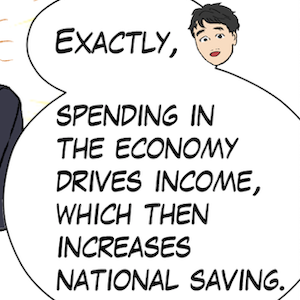British Labour Party running scared of the usual shadows
This is an election year in the UK and unless something dramatically changes, the Labour Party will be in power for the next term of Parliament and will have to manage a poly crisis that they will inherit from 40 or more years of neoliberalism. Note, I don’t confine the antecedents to the Tory period of office since 2010 because the decline started with James Callaghan’s Labour government in the 1970s and then just got worse during successive periods of Labour and Tory rule. During that long period, there has been no shortage of economists and public officials predicting that the financial markets would soon reap chaos as a result of the public debt levels being ‘too high’ (whatever that means). The most significant chaos came in 1992 when Britain was forced out of the European exchange rate system, which it should never have joined in the first place. While all these economists are now pressuring the likely next British government to pull back on their promises to ‘assuage’ the financial markets, there is not even a scintilla of evidence to support their predictions of doom. And the Labour party leaders are too stupid to realise that.



